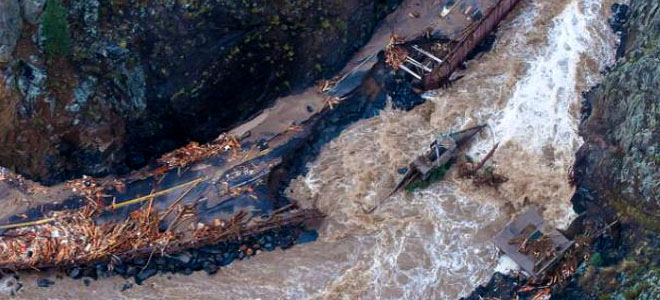The National Science Foundation (NSF) recently awarded Deserai Crow a 3-year grant for a project titled “Community Recovery and Colorado’s Extreme Floods of 2013: Policy Learning in the Context of Resources, Coalitions, and Political Conditions.”
Project Abstract: One of the most damaging natural hazards, flooding, annually causes billions of dollars in damage, response, and recovery losses for U.S. communities. As populations increase in flood prone areas, communities are becoming more vulnerable to floods. The responsibility for flood management has shifted from the federal to the local level and communities are now responsible for making decisions about if, how, and where to rebuild. Because of their potentially recurring nature, floods offer an opportunity for communities to learn from and adapt to these experiences with the goal of increasing resiliency through reflection, modification of former policies, and adoption of new policies. By following the response to the September 2013 floods in Colorado communities, this study will investigate how communities successfully learn from extreme events to increase resilience and decrease vulnerability to future floods. The project seeks to contribute to the fields of public policy and natural hazards research with the following objectives: to advance knowledge of policy learning in the aftermath of extreme events; to advance knowledge of disaster recovery, specifically as it relates to the role that community processes, citizens, and other stakeholders play in promoting long-term recovery and resilience; and to inform governments of lessons from flood responses to the September 2013 floods, with the goal of contributing to the effectiveness of governance in flood-affected communities.
The PIs will conduct longitudinal comparative case studies of seven Colorado communities, located in Colorado’s three most severely impacted counties from the September 2013 floods. This study will follow communities through their recovery and planning process over a period of three years. Four types of data will be used to examine flood recovery processes and outcomes. First, in-depth interviews will be conducted of participants in the planning and decision process of the community at three intervals during the recovery process. Second, surveys will be conducted with a larger sample of recovery process participants than those interviewed. Third, periodic surveys of community residents will be conducted. Finally, documents related to flood recovery and demographic data will also be gathered. Combined, these data will enable both qualitative and quantitative analysis of recovery processes and stakeholder participation, extent of damage, coalition beliefs and behavior, political context, and resource availability in communities.


